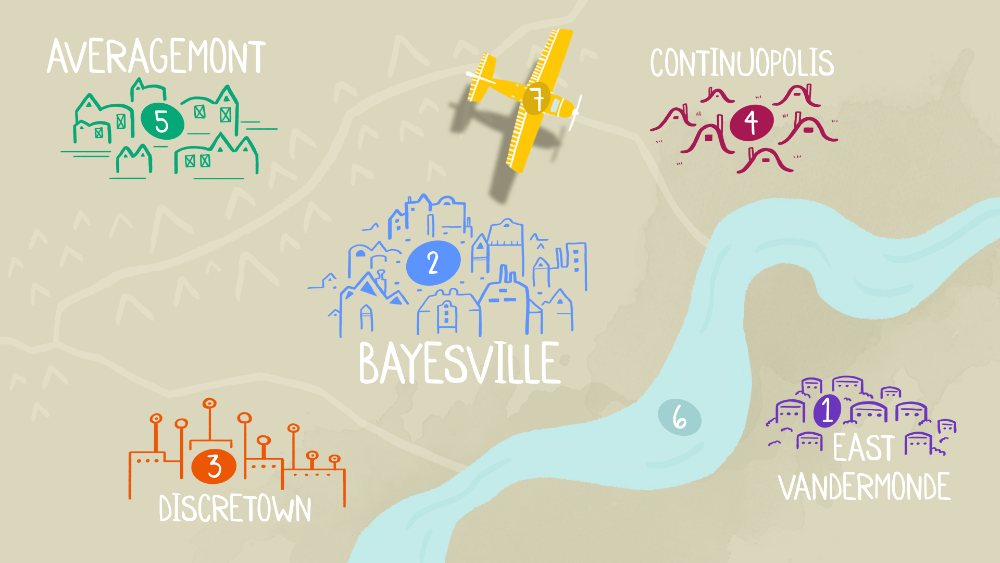Stat110
Descriptive statistics, probability distributions, estimation, hypothesis testing, regression, stat110, analysis of count data, analysis of variance and experimental design. Sampling and design principles of techniques to build on in the implementation of research studies. This is a paper in stat110 methods for students from any of the sciences, including students studying biological sciences, stat110, social sciences or sport science, as well as those studying mathematics and stat110.
Stat playlist on YouTube. Lecture 1: sample spaces, naive definition of probability, counting, sampling. Lecture 2: Bose-Einstein, story proofs, Vandermonde identity, axioms of probability. Lecture 3: birthday problem, properties of probability, inclusion-exclusion, matching problem. Lecture 5: law of total probability, conditional probability examples, conditional independence. Lecture 9: independence, Geometric, expected values, indicator r.
Stat110
A comprehensive introduction to probability as a language and toolbox for understanding statistics, science, risk, and randomness. The world is replete with randomness and uncertainty; probability and statistics extends logic into this realm. In this course, you will learn ideas and tools needed to understand the data and randomness that arise in many areas of science, engineering, economics, and finance. This course aims to provide a strong foundation for future study of statistical inference, stochastic processes, machine learning, randomized algorithms, econometrics, and other subjects where probability is needed. Prerequisites: All units require knowledge of algebra; Units require single variable calculus derivatives and integrals ; Unit 7 requires familiarity with matrices. No previous background in probability or statistics is required. This course has seven units of content, after a short introduction and orientation. A course map is available to help navigate the material. The course will end January 18, After the course ends, the content will remain available in archive mode. The discussion forums will close to new posts, but past posts will be read-only, and the staff will no longer be monitoring the course. The course team will send out occasional emails when new content is released, reminders closer to the course close, and for other occasional announcements. The messages will be archived under the course updates.
Lecture linearity, Putnam problem, Negative Binomial, St. Stat110 School On campus Semester 1 On campus.
.
APMTH teaches statistical inference and estimation from a signal processing perspective. The courses aims to teach students a to think about probabilistic models of data, b how to develop estimation and inference algorithms, and c how to apply it to real data. The course emphasizes the entire pipeline from writing a model, estimating its parameters and performing inference utilizing sports data, neuroscience data, geyser eruption data and other sources. The course also teaches students how to assess the goodness of fit of models to data, diagnostic tools to detect lack of fit, and Causal inference concerns the very difficult, challenging problem of addressing questions such as, "Would vaccinating children 16 and younger against COVID 19 lead to fewer deaths among public school teachers? The first module introduces the nuanced world of causal inference along with a fundamental tool: the language of potential outcomes. The second module covers randomized experiments and how
Stat110
Topics include data sources and sampling, concepts of experimental design, graphical and numerical data description, measuring association for continuous and categorical variables, introduction to probability and statistical inference, and use of appropriate software. Course Homepage: Recent semester. Purpose: To provide an integrated introduction to the basic statistical concepts encountered in mainstream and scientific media. Moore, and William I. Notz, W. Freeman and Company,
Painfully synonym
There are no formal mathematical or statistical prerequisites for this paper, but students who have not done mathematics or statistics at NCEA Level 3 are encouraged to make use of the online and tutorial resources available as part of the paper. The practice problems are provided to help you practice with the concepts before tackling the homework problems. Tuition Fees for international students are elsewhere on this website. Lecture linearity, Putnam problem, Negative Binomial, St. Overview Descriptive statistics, probability distributions, estimation, hypothesis testing, regression, analysis of count data, analysis of variance and experimental design. We hope it contributes to a sense of community and serves as a useful resource for your learning. Skip to main content To see course content, sign in or register. Lecture Markov chains cont. If you have any questions or concerns, please contact harvardx harvard. Lecture standard Normal, Normal normalizing constant. After the course ends, the content will remain available in archive mode. Copies of all lecture slides area available at the start of the course either in electronic or paper form. Lecture sum of a random number of random variables, inequalities Cauchy-Schwarz, Jensen, Markov, Chebyshev.
Stat playlist on YouTube. Lecture 1: sample spaces, naive definition of probability, counting, sampling. Lecture 2: Bose-Einstein, story proofs, Vandermonde identity, axioms of probability.
Petersburg paradox. By registering as an online learner in an HX course, you will also participate in research about learning. This course aims to provide a strong foundation for future study of statistical inference, stochastic processes, machine learning, randomized algorithms, econometrics, and other subjects where probability is needed. Joseph K. Here are some guidelines to observe on the forums. This course has seven units of content, after a short introduction and orientation. HarvardX will take appropriate corrective action in response to violations of the edX honor code, which may include dismissal from the HarvardX course; revocation of any certificates received for the HarvardX course; or other remedies as circumstances warrant. Tuition Fees for international students are elsewhere on this website. Lecture conditional expectation cont. We encourage class participants to share their solutions and ideas for practice problems, whereas for homework problems, posting full solutions in the forums is not allowed.


0 thoughts on “Stat110”